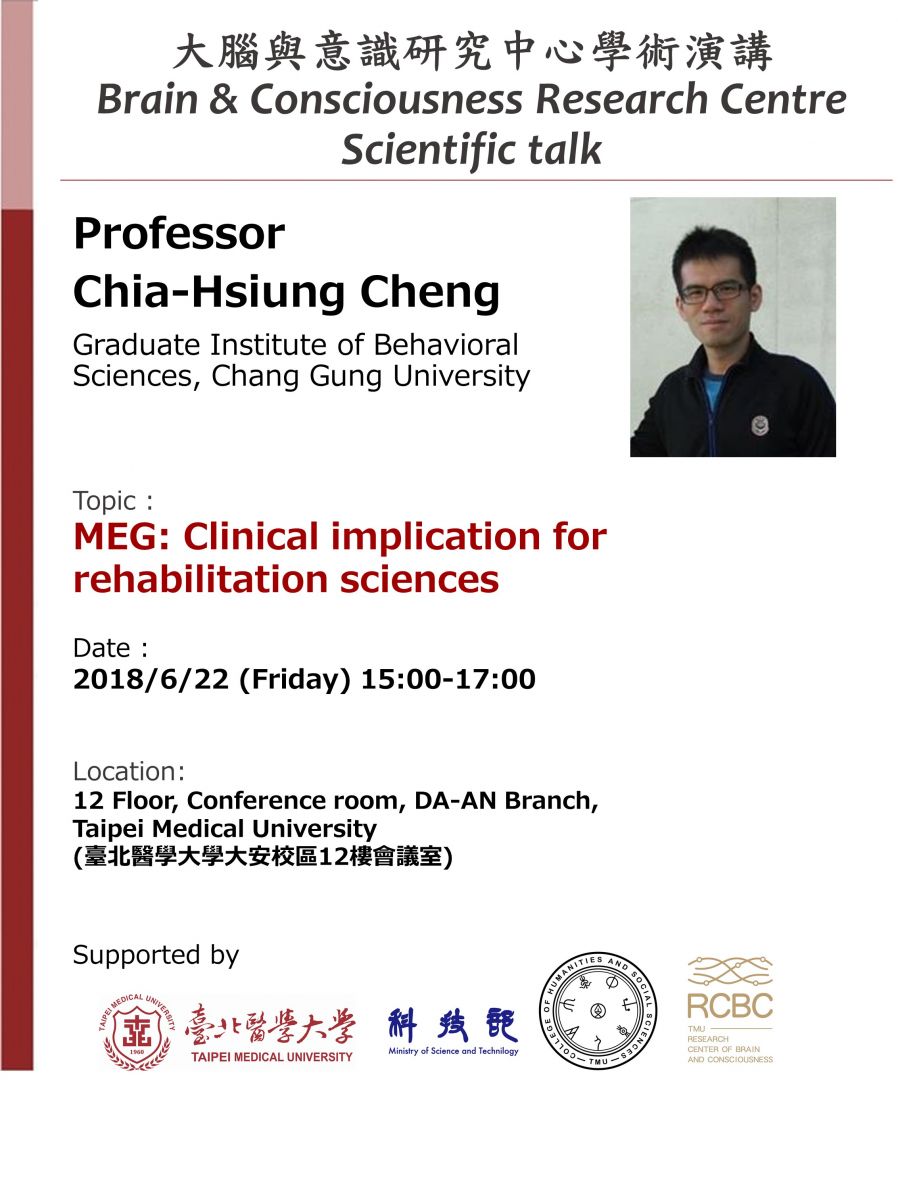Speaker: Chia-Hsiung Cheng (Graduate Institute of Behavioral Sciences, Chang Gung University)
Date: 2018.06.22 (Fri) 15:00-17:00
Location: 12 Floor, Conference room, DA-AN Branch, Taipei Medical University
Abstract:
Magnetoencephalography (MEG) is a non-invasive imaging modality measuring extracranial magnetic fields that are elicited by neural activities of the human brain. With the features of the excellent temporal resolution and reasonable spatial resolution, it is possible to examine the spatiotemporal dynamics of the cortical responses. There are several common methods to reconstruct the neural generators based on different assumptions and algorisms, such as equivalent current dipole (ECD) modeling, minimum norm estimate (MNE), minimum current estimate (MCE), beamformer, etc. In addition to the introduction of MEG instrument, its comparisons with EEG and functional MRI will be addressed. Up to date, the most significant contribution of MEG to the clinical application is epileptic spike detection and localization. However, greater potentials also exist in the investigation of neurological and psychiatric disorders. In this talk, I will specifically focus on the MEG research in stroke patients, from disease progression to recovery. Furthermore, several innovative rehabilitation approaches, such as mirror therapy and action observation therapy, will be introduced. Finally, the possible neural mechanisms of these interventions by means of the MEG recordings will be addressed.




